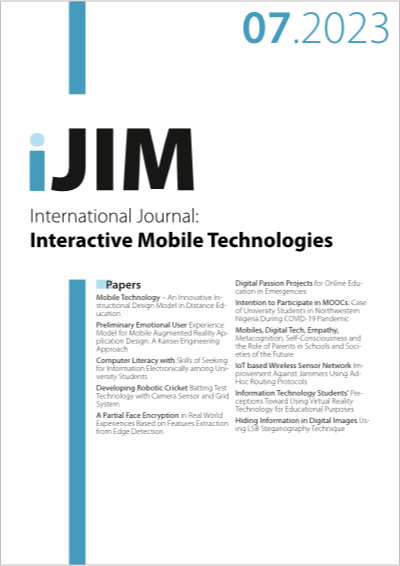Digital Passion Projects for Online Education in Emergencies
DOI:
https://doi.org/10.3991/ijim.v17i07.38397Keywords:
engagement, passion project, academic performance, self-efficacy, education in emergenciesAbstract
The research studied the effectiveness of the digital passion project activity for developing oral presentation skills of undergraduate students learning English as a foreign language in online education in emergencies. Considering the basic intervention principles suggested by psychologists for students affected by disasters and mass violence circumstances, the researchers conducted a quasi-experiment exploiting the recognized potential of the passion project to build a positive emotional environment and encourage more efficient learning. The findings revealed that experimental group students outperformed control group students in the four out of five aspects of the rubric applied (content, coherence and cohesion, vocabulary richness and adequacy, and grammatical correctness). The results can be attributed to the observed increased creativity, inquisitiveness, engagement in learning, and self-efficacy as well as to the project marketplace method applied at the initial stage. The passionate involvement in the project was proved by the survey administered to check student’s level of passion during the work on the passion project.
Downloads
Published
How to Cite
Issue
Section
License
Copyright (c) 2023 Svitlana Mykytiuk, Olena Lysytska, Oleksandr Chastnyk, Serhii Mykytiuk

This work is licensed under a Creative Commons Attribution 4.0 International License.



